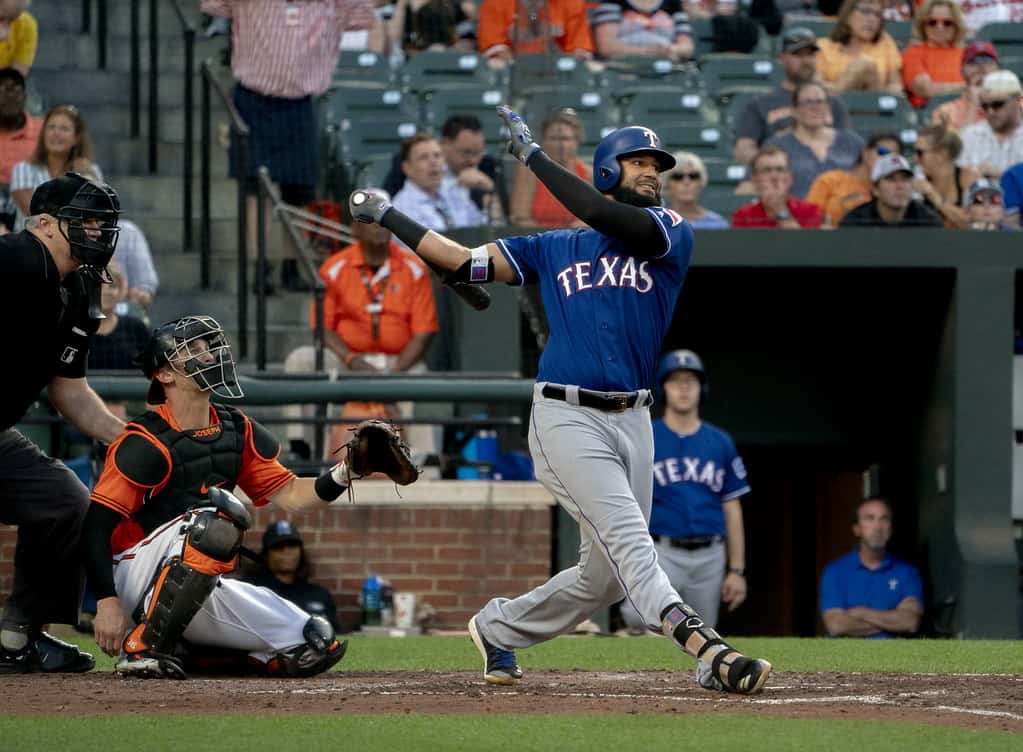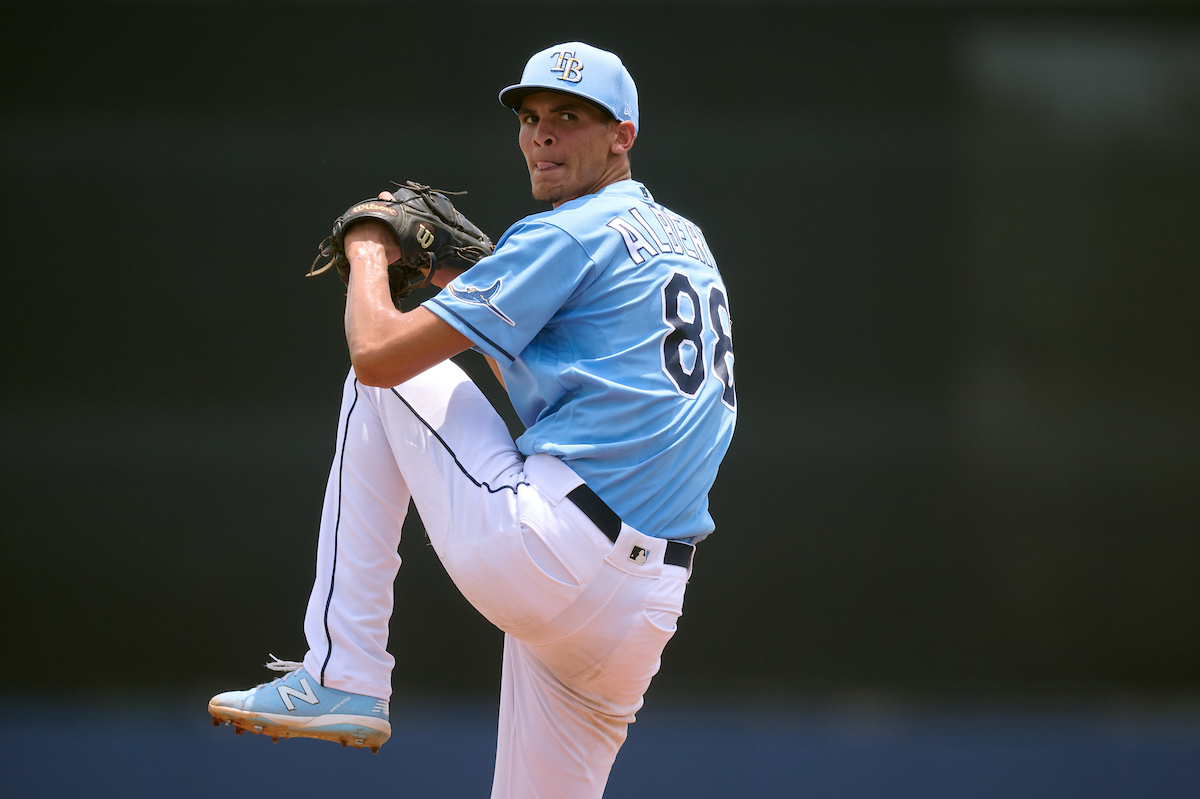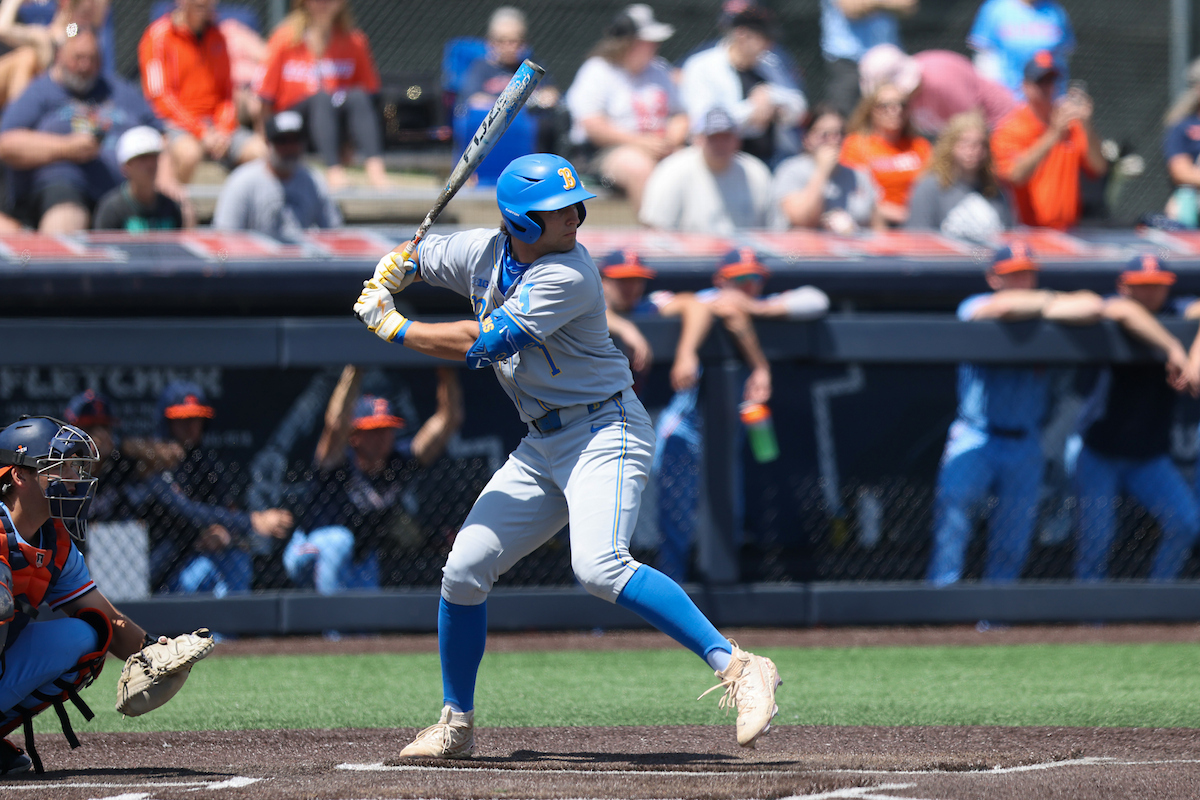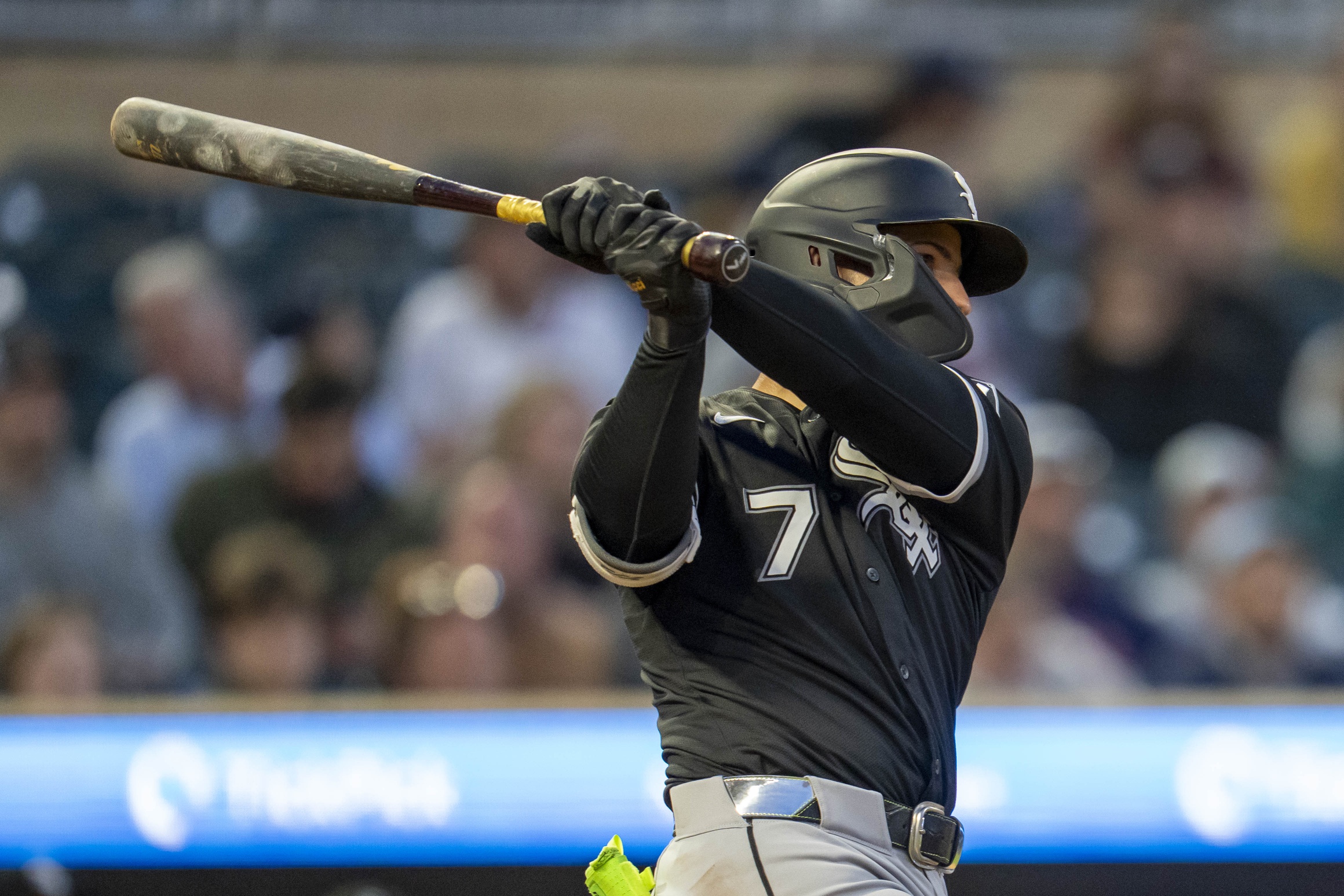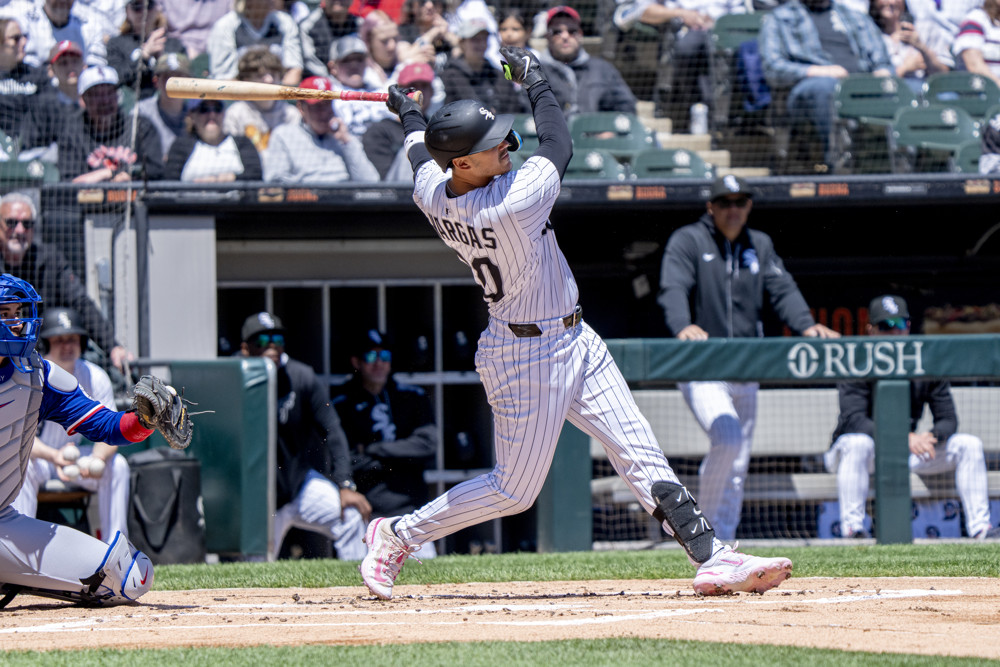As many know, I annually hand out grades to each individual move the White Sox make when the offseason wraps up. In anticipation of that post, the wheels start turning in my head as soon as the moves are made, but our understanding of the logic (or lack thereof) of each move the White Sox make can evolve over the course of the winter. Sometimes, (as in the case of Edwin Encarnacion) the reasoning is straightforward and I don't need to spend many words explaining why I feel the way I do about the move. Other times, it feels like I could write a 400 page novel with my thoughts on a particular decision. The Nomar Mazara trade is one such move.
The majority (of which I'm a member) opinion of the acquisition of Mazara seems to be that the return (Steele Walker) the Sox gave up was appropriate, but that Mazara's track record makes him an uninspired solution to fix the Sox' biggest hole in the field. Although I have no immediate plans to waver from that stance, there are at least some plausible explanations that one could attach to the trade, which differentiates it from some of the obvious blunders of the past (Yonder Alonso, swapping Tyler Flowers for Dioner Navarro). I'd rather not use more than three times the typical amount of words for Mazara's entry in offseason grades post to talk about the ways the deal might be fine, so let's talk about that here.
We'll start with this quote from Rick Hahn:
Hahn said they’re hopeful on Mazara’s upside and have a plan to unlock it but doesn’t want this addition to be viewed in a vacuum, before it’s seen how the entire offense will shake out. They think Mazara helps even if he just hits righties from the bottom third of the order
— James Fegan (@JRFegan) December 11, 2019
Mazara has a career .799 OPS against right-handed pitching and he posted his top mark of .844 in his most recent season. Hahn's quote at least indicated that the organization has some tempered expectations about what they're going to get out of Mazara, and the acquisition of Encarnacion will further decrease the offensive load that they're expecting Mazara to carry. Still, none of the subsequent acquisitions directly affect Mazara's role or improve his fit, and the move can still largely be taken for what it initially appeared to be. There's three things that could potentially change that, and only the first of which will be knowable by the end of the winter.
No. 1: The White Sox acquire a platoon partner for Mazara that can hit lefties
When Mazara was acquired, he was penciled in for the time being as the starting right fielder with no obvious platoon partner, and that's still his role. The Sox have a couple internal candidates in Leury Garcia and Adam Engel to platoon with him, but these aren't particularly inspired choices. Neither guy has shown a penchant for hitting lefties over his career (Garcia: .683 OPS; Engel: .679 OPS), though both performed better against southpaws in 2019 (Garcia: .786 OPS; Engel .841 OPS). If the most recent season for either guy is a sign of things to come, that could solve the problem, and the Sox could get a season of average-ish production from right field on the cheap.
The more likely scenario is that both guys regress to closer to their career norms and help to shield Mazara from lefties (.633 career OPS-against) while providing better defense. While that's a lot better than the value sinkhole the Sox had in right field last year, it's still a problem that needs to be compensated for by star power (a thing the Sox have in short supply) elsewhere on the roster.
One way to mitigate this would be for the Sox to acquire a player to platoon with Mazara. The free agent market doesn't seem like it has a great deal of solutions here, but a guy like Kevin Pillar (.766 career OPS vs LHP, .823 OPS vs. LHP in 2019, strong defender) might make some sense as someone who could approximate Engel's comparatively strong 2019 with greater certainty and add depth to the outfield mix. The Sox could also pursue a solution in trade.
No. 2: The White Sox have a conviction that they can unlock Mazara's potential
I won't spend much time on this because the White Sox' recent track record with importing external players leans closer to permanently ending careers than exceeding -- or even meeting -- expectations. However, Mazara's a little different than the Adam LaRoches of the world in that he's heading into his age-25 season and his recent track record shows some continued improvement against right-handed pitchers. Mazara's logged 2,200 major league plate appearances and has shown little, so the smart money is on skepticism, but at least we can say that there's more hope for a young-ish former top prospect finding another gear than there was for the Yonder Alonsos of the recent past.
No.3: The White Sox didn't like this winter's right field market, and have big plans to address the position next winter
If you are an optimist on Nomar Mazara, you're probably pinning your hopes on #2, above. If you are an optimist on the White Sox, however, this is where the focus needs to be.
While we could discuss the merits of acquiring Josh Donaldson or Anthony Rendon and asking Yoan Moncada to go through another position change (spoiler alert: there was merit!), if we're talking purely about right fielders, the two best options on the free agent market this winter were Marcell Ozuna and Nicholas Castellanos. Both guys project as above-average players, but both players are also flawed in that they're poor defenders and (for those who care) bat from the right side. Either player would narrow the gap between the Sox and Minnesota or Cleveland compared to Mazara, but neither would flip the projected division hierarchy. Both players will likely require at least a 3-4 year commitment at a fairly high annual salary.
Now, think about two of the headliners of next offseason's free agent class:
What if the Sox decided they didn't want to tie down right field with a long commitment to any of this year's free agents, and intend to take a big swing at one of these two players next winter? Most of the moves they've made thus far would be consistent with this strategy. Grandal is a star, and one they badly needed. After missing on the top pitchers, Keuchel was necessary regardless of the timing of the Sox' strategy. Encarnacion and Gonzalez are one-year commitments. Finally, Mazara's a weaker option than Ozuna or Castellanos but can simply be non-tendered next winter if he doesn't show anything.
The Sox have a nonexistent history in playing at the top of the market, so I don't want to get my hopes up here. However, if the 2020 White Sox have a reasonably good year and can post a win total at least in the mid-80s, they would suddenly have the differentiating factor in free agency that they've never really had in recent memory: a good young core that should be together for at least another three years that has proven it can win more games than it loses. The Sox would finally have a reason for a player to come to the South Side besides money. By next year, it'll be clearer what Michael Kopech, Dylan Cease, Luis Robert, and Nick Madrigal really are, and hopefully that triggers the addition of the biggest and final piece of the puzzle. The odds that the Sox actually ink Betts are microscopic, but maybe, just maybe they could convince Springer to man right field in 2021. Maybe, just maybe Jerry Reinsdorf would let that happen.
If George Springer becomes the reason for Nomar Mazara, then the trade for Mazara is all-the-way justified. For the time being, I'm not going to let this affect my evaluation of the move; "it's okay if they get someone way better next year" is hardly a ringing endorsement of a decision. However, if Springer (or if hell freezes over, Betts) signs a deal to play here next winter, we'll be able to look back on the acquisition of Mazara in a different light as a one-year experiment during which several other young players were trying to get their feet wet.
***
For 2020, the Sox find themselves in a familiar situation in that they have a skeleton of a contender and need plenty of things to break right to make the playoffs. With all of the young players and injury questions already on the team, Mazara appears to add more risk to a team that already has plenty of it. He's not the proven solution we wanted, but if the Sox add another player to hedge the risk, if Mazara finally has his long-awaited breakout after a change of scenery, or if the Sox show us next winter why they didn't pursue a larger commitment for right field, we'll be able to be forgiving of this ostensibly aim-low move. For my money, the Sox should be taking 2020 more seriously than this and I'm still not a fan of the decision, but there's hope for redemption here.
